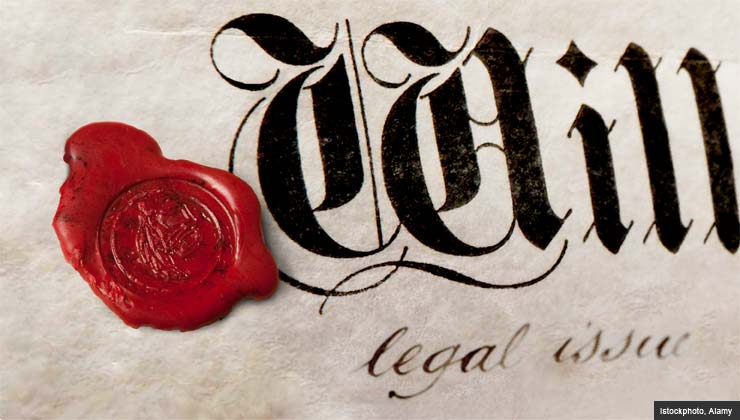AARP Hearing Center


After Paul Young's mother died in February 2010, he was shocked to discover that she had left a $600,000 home, all its contents, all her checking accounts and 80 percent of the rest of her property to his sister. Young's grown stepdaughter, on whom his mother had doted since she was a toddler, was left completely out of the will.
See also: What you should know about writing a will.
"This came totally out of the blue, and we still don't know the motivation behind the slight," says Fran Young, Paul Young's wife of 25 years. "Paul feels helpless in this situation."
But is he?
The chances of success are slim, but wills can be challenged in court.
New York-based estate attorney Herb Nass regularly takes calls from people who feel dissatisfied about a departed loved one's will and want to know about filing a challenge. "People are trying to do it more and more as the parents of baby boomers are dying, and I'm seeing a lot of rivalry between siblings," says Nass, author of The 101 Biggest Estate Planning Mistakes.
What you need to contest
Anyone who wants to revise a will after the author's death must attempt to establish one of the following four legal grounds:
- Undue influence. It's difficult to prove, but if the deceased person was pressured extensively by someone to change the will, you have a case.
- Fraud. Also difficult to prove, but if the will's author was tricked into signing a will — maybe he or she was told it was a deed or some other legal document — the will is invalid.
- Improper execution. If the will was not prepared or executed properly under the laws of the state in which it was created, it could be thrown out in court.
- Lack of capacity. If the will maker was not mentally capable of thinking out the issues involved in a will at the time it was created, the will could be invalid.



































































More on money
How to Write Your Will Online in 15 Minutes
One quick document can avoid leaving your estate in a mess
How to Stop Stalling on Your Estate Plan
Simple steps to get your affairs in orderDon’t Make These 8 Common Estate Planning Errors
You and your heirs will get peace of mind and avoid squabbles